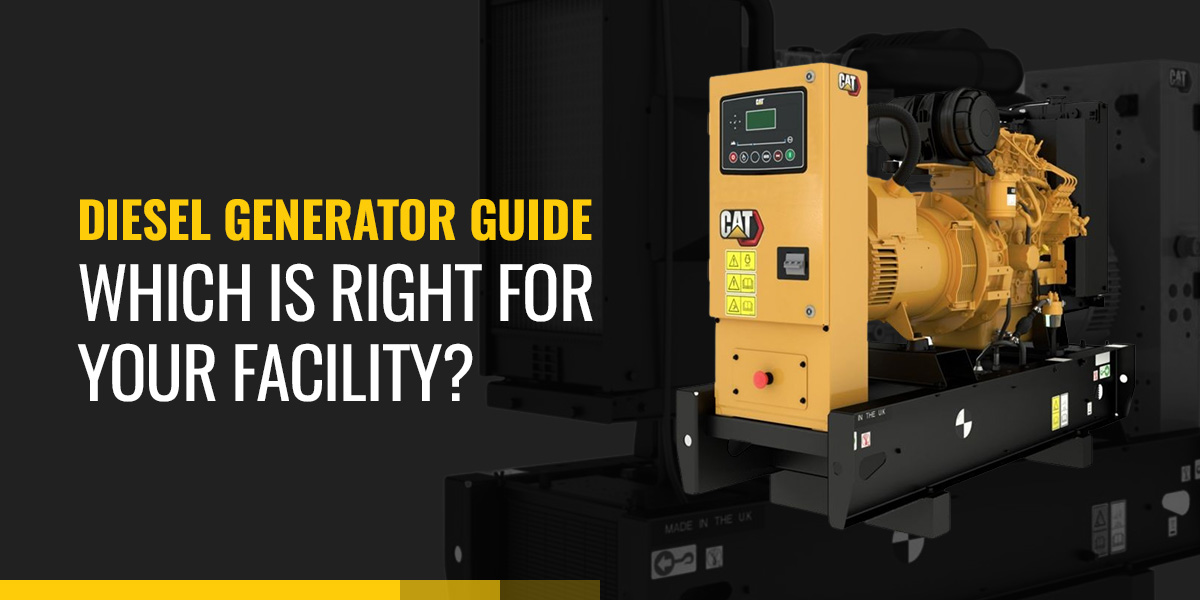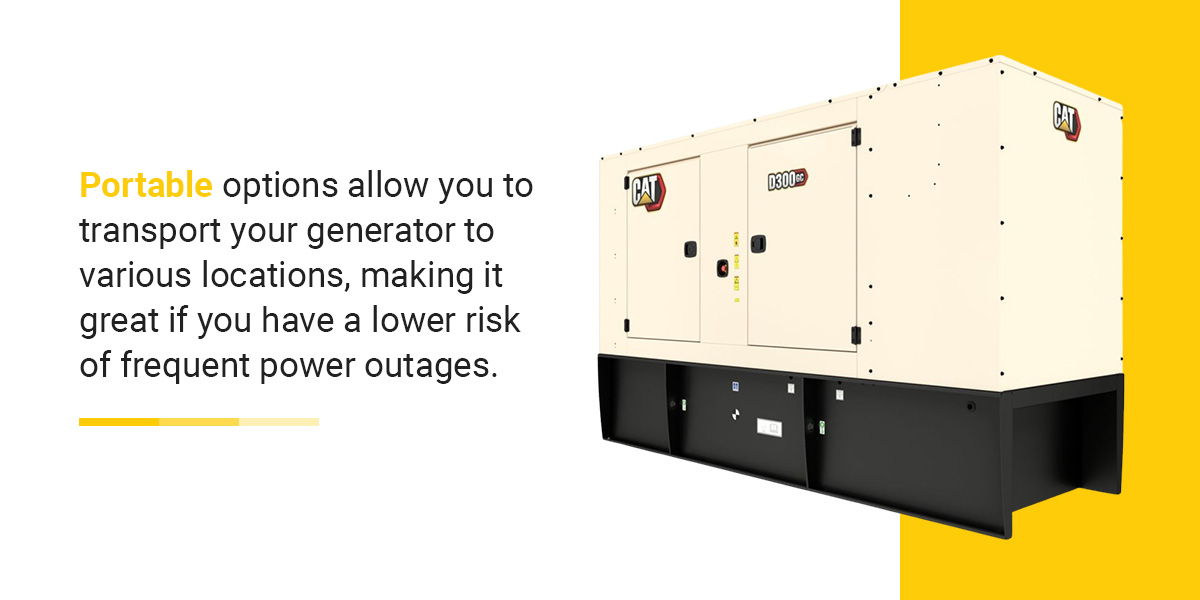

When trying to find the right generator, you probably have many questions. How much does a commercial or industrial generator cost? What specifications do you need for your operations? Navigating our guide to choosing the right generator can help you determine how to select a generator that will fit your requirements and best serve your facility and equipment.
Whether buying a new generator or looking to rent, you must find the right one for your facility and operations. Some reasons to research and invest in the perfect generator for your needs include:
Every facility has unique needs, from spacing to the equipment you house. Understanding how your location can influence the generator specifications you look at can help guide you toward the right commercial gas generator for your business.
When choosing a generator, find the one that fits your electrical capacity and can support all the equipment you need to power when your main electricity source stops working. Depending on your needs, you might need a generator to power the entire facility or individual rooms and machines. Each facility has unique requirements and power necessities, so it’s essential to know your location’s requirements explicitly before purchasing or renting a generator.
Where you place your generators can affect their functionality and their impact on your personnel and employees. Diesel generators for business use can come in indoor or outdoor models. Outdoor generators are great if you have less internal space to keep them, but you must be careful to get a model that can withstand the elements.
If you choose to place your generator indoors, think about how the noise might affect those working in the building. Loud noises can be a health and safety hazard, causing hearing loss and damage to regular employees working around the noise.
When you have limited space indoors or outdoors, you can choose your preferred location by paralleling several generators. Paralleling generators is grouping more than one generator to create a larger load. For example, you can use three 400 kilowatt generators instead of one 1,200 kilowatt generator.
This practice has multiple benefits for businesses. When it comes to space, it’s often easier to fit multiple smaller generators in one area than one large generator, which is helpful if you have limited space to place the generator where you want. Paralleling can help make emergency generator sizing easier for companies, helping meet your needs better, too.
Your facility’s location will influence how to select the right generator. The weather your geographic region experiences frequently can determine what kind of generator you need. Do you often experience hurricanes or heavy snowstorms?
Intense and recurring weather patterns can cause you to lose power and need more comprehensive generator services that can last longer. Alternatively, frequent thunderstorms or above-ground power lines might require more temporary solutions.

While you have many technical specifications to review, you should also consider the type of generator you’ll want. Depending on your needs and risk type, you can choose between portable and stationary generators.
Portable options allow you to transport your generator to various locations, making it great if you have a lower risk of frequent power outages. Portable generators can be powerful temporary tools, but they typically have lower wattages and can only function for days at most. They’re better for short-term emergencies and maintaining only essential operations. All portable generators require some manual action to start them, so you must be able to reach your facility to turn them on.
Stationary generators are permanent fixtures that can automatically turn on when you lose power. Because you don’t need to move them, they’re often larger and have increased functionality. You can use them to power entire rooms or facilities, making it possible to operate fully even in the face of adverse conditions. These generators are great options if you endure frequent power outages.
While you might have a general idea of your required wattage and power demand, you can better understand your energy needs by calculating the starting and running loads of your equipment. The starting load is the energy required to turn on a piece of equipment, while the running load is the power needed to operate it. Each piece of machinery will have these numbers either on it or in the owner’s manual.
Adding the starting and running loads will tell you the total power requirement for that piece of equipment. Including everything you need protected by your generator in your calculations will help you understand the wattage level the generator should have. Aim for a generator slightly higher than you need — this will help prepare you for unknown situations, like adding or updating equipment or extreme conditions.
When searching for the right commercial gas generator, you can ensure your generator will handle your desired power demand by getting the proper phase type. Generally, generators have two phase types — single- and three-phase. The difference is the number of conductors they have and run energy through. A single-phase generator will have only one conductor, while a three-phase one has three.
Because of the difference in the energy they can manage, the phase types typically relate to their function. Single-phase generators are better for smaller jobs, so you’ll often find them used in homes or as backup generators. Three-phase generators have more commercial and industrial applications because they can handle larger energy loads.
Once you understand what kind of generator you should look for, you just need the right distributor to help connect you with the suitable model.
Thompson Power Systems is a local generator distributor in Alabama and northwest Florida, so we understand the area’s unique needs. We value building strong relationships with the communities and clients we serve to help us improve our services and assist you.
We offer a wide range of diesel generator sets, allowing you to find exactly what you’re looking for, including Cat models. If you only need a temporary solution, you can rent portable generators from us, too.
Contact a Thompson Power Systems representative today to discover how we can provide you with permanent or temporary power solutions for your facility.